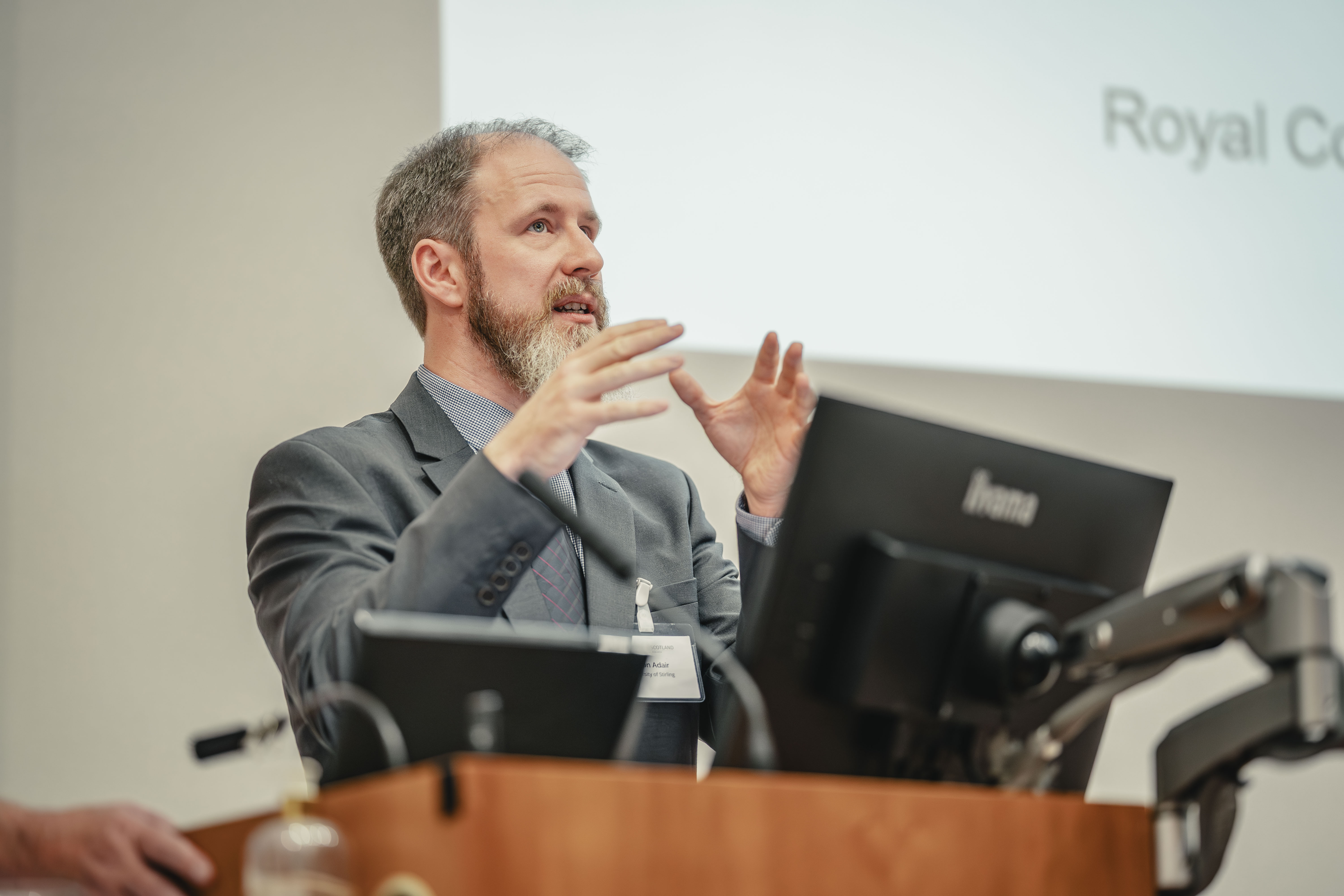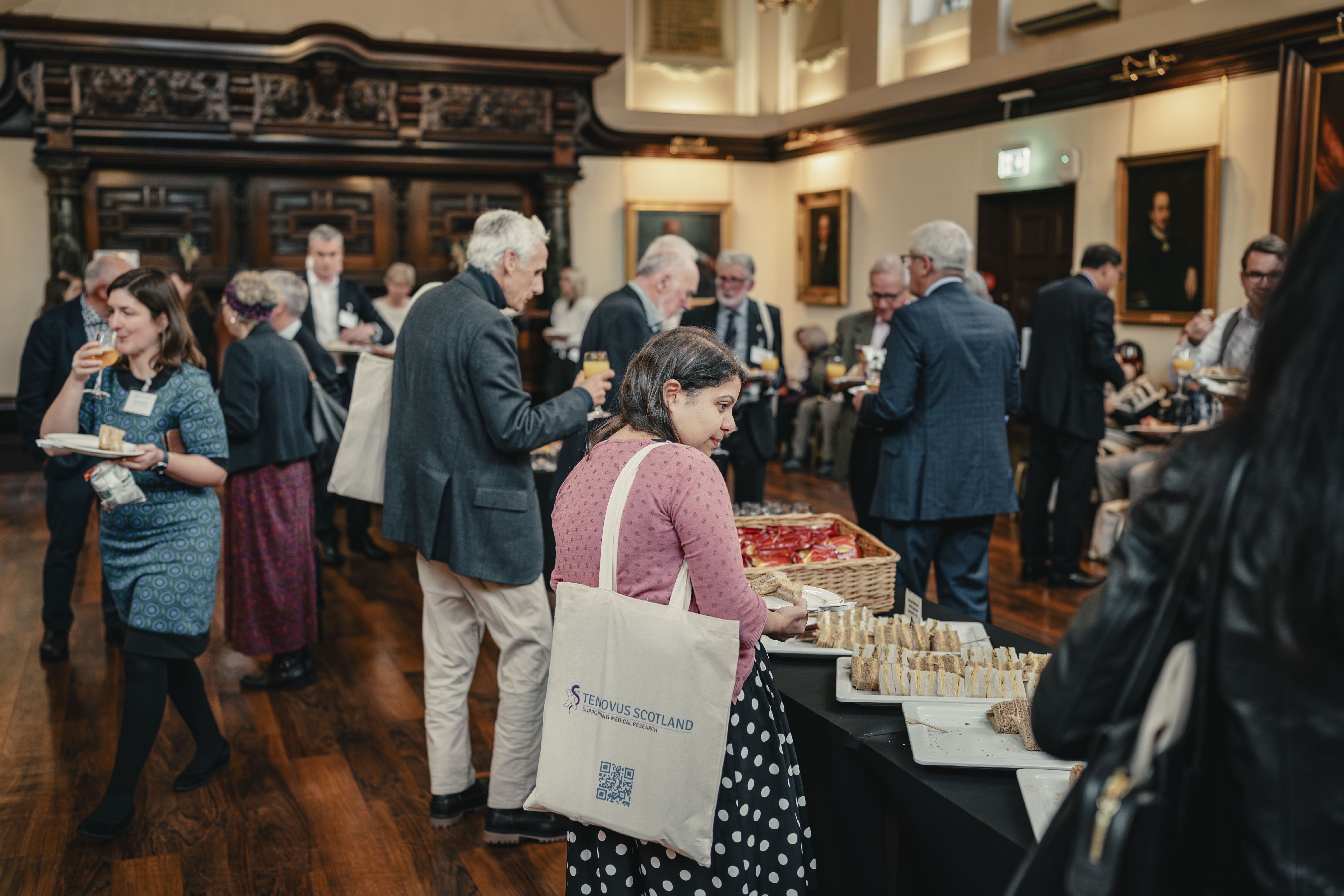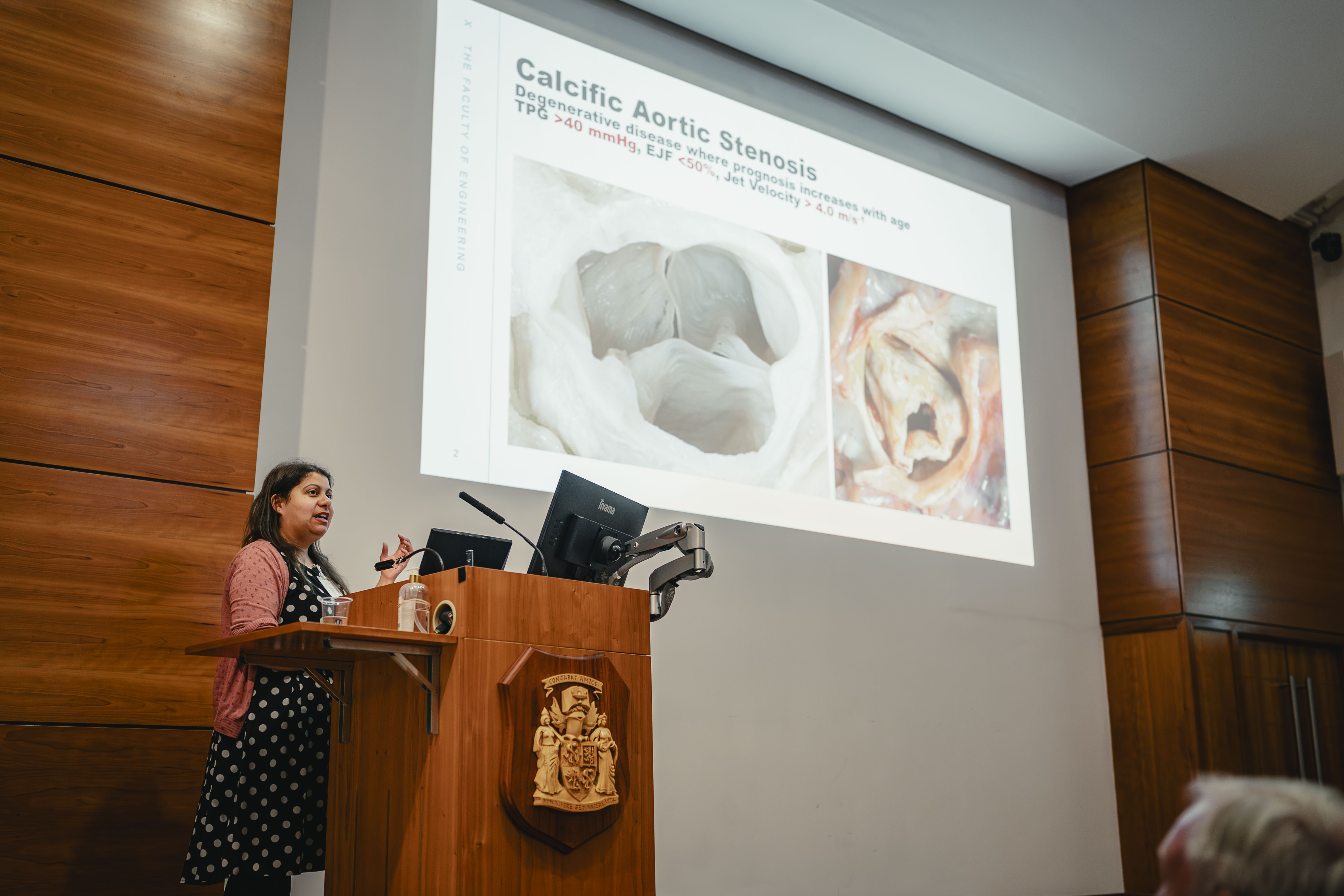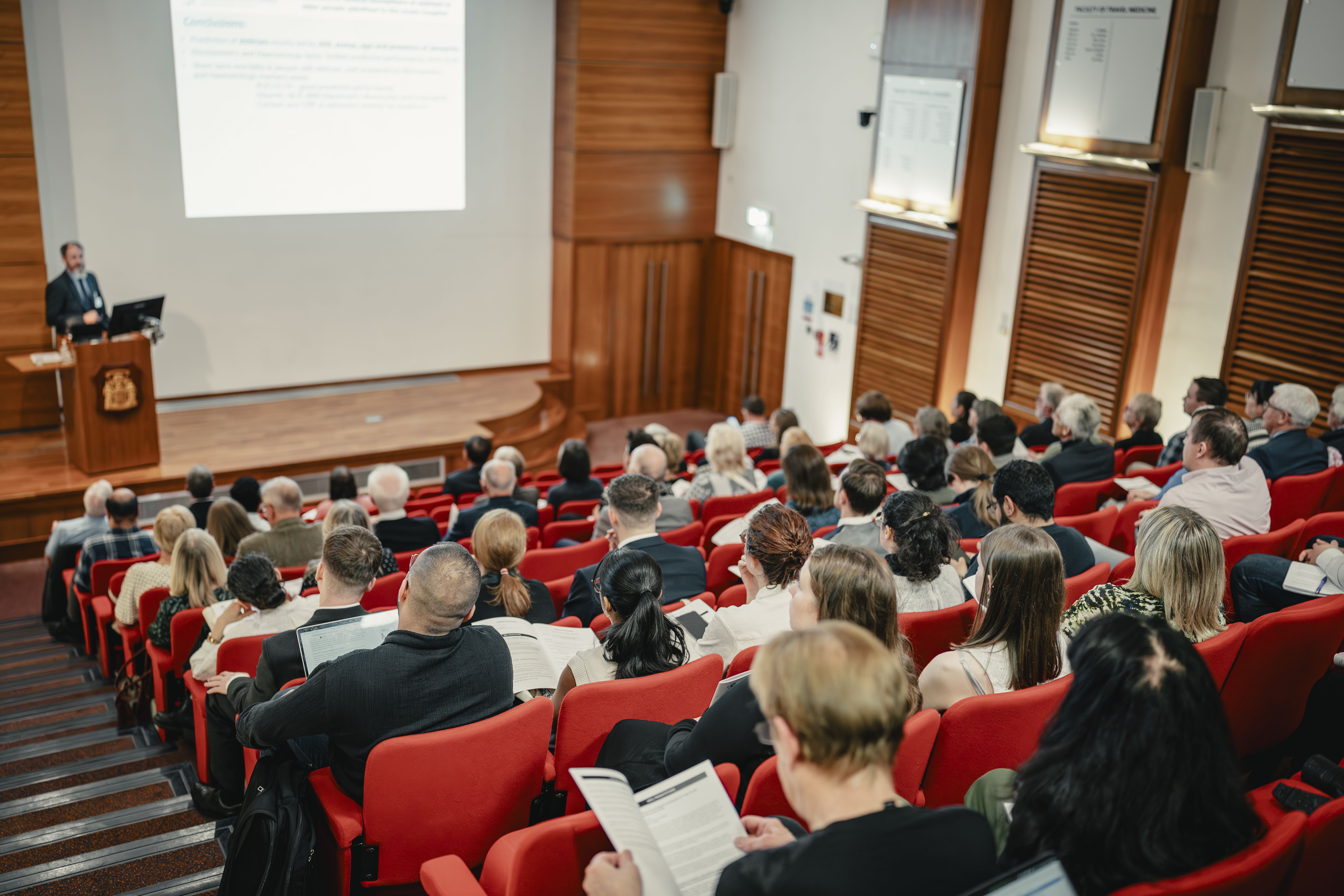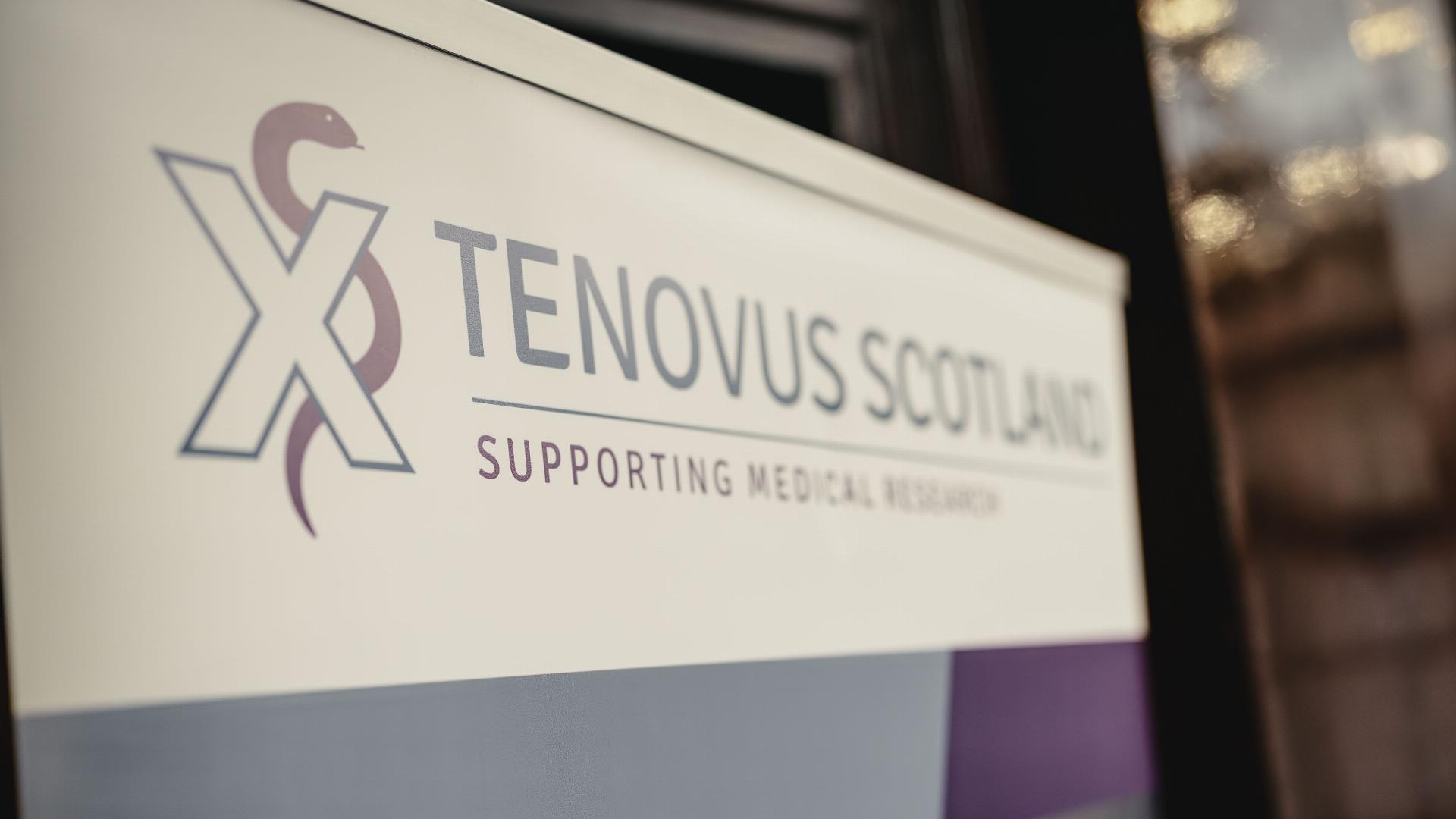A next-generation heart valve, novel treatments for eye disease and studies of new medicines for Type 2 diabetes were among the promising new therapies on display at the Tenovus Scotland research symposium on Friday (3 October.)
The event, held at the Royal College of Physicians and Surgeons of Glasgow, addressed some of Scotland’s most pressing health challenges, including obesity-related cancers, heart disease, sepsis and age-related conditions such as delirium and chronic pain.
The research is being funded by Tenovus Scotland, the medical research charity.
Professor Jamie Grieve, National Chair of Tenovus Scotland said:
“This event underscored the importance of continued investment in health research and its impact on communities across Scotland. We are delighted to reaffirm Tenovus Scotland’s role as a catalyst for medical progress – funding research scientists to move us closer to real-world solutions for patients. We look forward to continuing our support of transformative research in the years ahead.”
Event delegates were welcomed by Professor Hany Eteiba, President of the Royal College of Physicians and Surgeons of Glasgow, where Tenovus Scotland is based. Professor Eteiba said:
“For 425 years, our College has been a place of innovation – and so it was a particular pleasure to welcome Tenovus Scotland, colleagues and researchers from across the country to discuss the latest developments in medical research.
Scotland is home to tremendous research talent, and today’s symposium underlined the impact of universities and healthcare professionals working together to find solutions to global health challenges. Together, we can improve patient outcomes, address public health challenges, and enhance quality of life.”
The showcase included studies on genetic risk factors for atherosclerosis, new approaches to managing inflammation, the design of antibacterial materials to help fight infection and insight into clinical trials participants compared to everyday patients in Scotland.
Among the researchers presenting their work were:
- Dr Monica Kerr, a Fellow at the Department of Biomedical Engineering at the University of Strathclyde, who presented her research on a novel heart valve for global heart disease
- Dr Peter Hanlon, a GP and Clinical Research Fellow at the University of Glasgow, who is comparing age, comorbidity and event rates between sodium-glucose co-transporter 2 inhibitor trial participants and people treated in routine care
- Dr Sourav Banerjee, School of Medicine at the University of Dundee, who described designing an orally-available brain tumour drug from scratch
- Dr Etienne Dusengeyezu, Institute of Medical Sciences, at the University of Aberdeen, who described the role of PDE1 and novel PDE 1 inhibitors in leukaemia
Friends of Tenovus Scotland hosted a reception following the symposium where researchers were able to meet with supporters and donors of the charity.
Gallery
Some images from the event.
